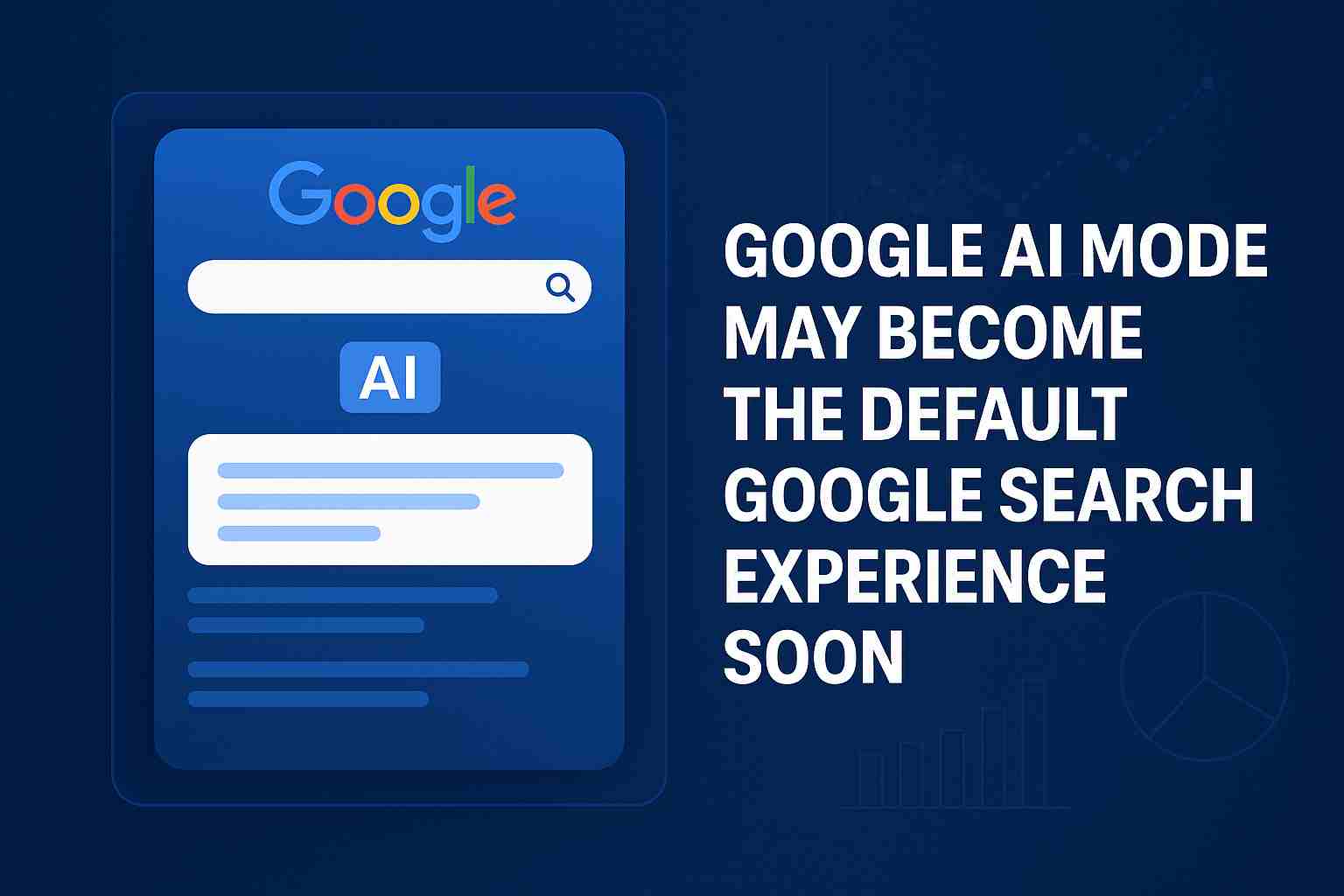Introduction
Ever typed something into Google and noticed the answer popping up instantly, without even needing to click a link? That’s Google’s AI Mode at work and it might soon become the default search experience. If this happens, the way we search, discover, and rank online is about to change dramatically. So what does this mean for businesses, SEO pros, and everyday users? Let’s break it down.
What exactly is Google AI Mode?
Google AI Mode is essentially the company’s generative AI system integrated directly into search results. Instead of the traditional “10 blue links,” you’re greeted with AI-generated summaries, insights, and follow-up suggestions. For a deeper look, check out Google’s official blog on AI and Search.
As one search analyst put it, “AI Mode is not just an add-on it’s the future blueprint of Google Search.”
Why is Google making AI Mode the default?
The short answer: competition and user expectations. With OpenAI, Microsoft, and other AI-driven platforms redefining how people get answers, Google doesn’t want to fall behind. Users are also signaling that they prefer quick, conversational results over endless scrolling.
For a deeper perspective on how AI is reshaping visibility, check out our blog on SEO beyond the website in the AI era.
How will this impact SEO and websites?
If Google AI Mode becomes the default, SEO won’t be about just ranking links it’ll be about being included in AI summaries. That means:
- Structured, clear answers matter more than ever
- Authority signals like E-E-A-T remain critical
- Fresh content gets preference in AI-driven overviews
Websites that rely purely on traffic from “clicks” may see a drop, but brands that adapt to become “trusted sources” will thrive.
What changes can users expect in search experience?
Instead of clicking through multiple sites, users may spend more time inside Google’s ecosystem, asking follow-up questions directly to AI. This feels conversational, but it also shifts visibility away from traditional organic results. The upside? Better efficiency. The downside? Less control for businesses.
What do experts say about this shift?
Many experts agree that AI in search is inevitable. Some see it as a positive, offering faster access to information. Others worry it creates a “walled garden,” where Google becomes the ultimate filter of knowledge.
As SEO strategist Maya Patel explains, “The winners will be those who publish content so clear and trustworthy that AI has no choice but to cite them.”
How should businesses prepare for AI Mode?
The key is future-proofing your SEO strategy. That means:
- Using schema and structured data
- Updating old content to stay fresh
- Writing conversationally, like you’re already speaking to AI
If you want to see how to craft content AI loves, check our post on creating content for search and generative engines.
FAQs
Q1: Will Google completely remove links in AI Mode?
No, links will still exist, but they’ll play a smaller role in visibility.
Q2: Is AI Mode available everywhere right now?
Not yet it’s being tested in select regions, but full rollout could come soon.
Q3: Does this mean SEO is dead?
Definitely not. SEO is evolving, not disappearing.
Q4: What’s the biggest challenge for businesses?
Standing out in AI summaries while still driving meaningful traffic.
Q5: Can small businesses benefit from AI Mode?
Yes, if they create focused, trustworthy content tailored to real user questions.
Conclusion
Google AI Mode becoming the default search experience “soon” isn’t just a rumor it’s a signal that the search world is entering a new era. Whether you see it as a challenge or an opportunity depends on how fast you adapt. Businesses that embrace clarity, authority, and fresh insights will be the ones AI relies on.
So what’s your take are you ready for a future where Google’s AI becomes your search front door? Drop your thoughts in the comments below.
